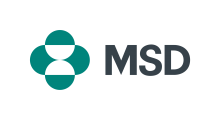Breast cancer is the most common cancer and the leading cause of cancer death among women in South Korea. Both the number of newly diagnosed patients and the age-standardised rate of breast cancer are increasing every year, with 28,049 newly diagnosed breast cancer patients in 2018, an increase of 6.1% from 2017. It is estimated that there were an additional 28,032 women diagnosed in 2022.
Breast cancer diagnosed at an early stage, when it is not too large and has not spread, is more likely to be treated successfully than breast cancer diagnosed at an advanced stage. In South Korea, the proportion of patients with Stage 0 and Stage I breast cancer has steadily increased since 2002 and accounts for more than half of the total breast cancer cases since 2010. Advanced breast cancer not only creates an urgent health challenge but also impedes the quality of life, and brings significant economic costs for patients, their families and public health systems.
There are significant opportunities to improve breast cancer care in South Korea by understanding the patient-centred care pathway for early breast cancer diagnosis and treatment and investigating the unmet needs in managing breast cancer.
Using an evidence-based approach that incorporates a review of existing data and an expert panel meeting, we designed a force field analysis to assess existing policies and system performance across four domains of the patient journey: population awareness, screening and diagnosis, treatment, and survivorship.
Indicators within each domain were selected based on evidence of their impact on promoting or deterring optimisation of patient-centred care for early breast cancer. We then shared the findings with South Korean stakeholders to gain local perspectives. We drafted scores for indicators within these four domains based on our research and these local insights. This report combines in-depth research and force field analysis of early breast cancer care in South Korea.
Key findings:
• Population awareness: Population awareness is crucial for early detection of breast cancer, to encourage screening and better health-seeking behaviour. Patient advocacy groups in South Korea play a big role toward promoting breast cancer awareness, and there are initiatives in place to educate the public, spread knowledge, and encourage research in breast cancer.
However despite these efforts, the lack of knowledge of the risk factors associated with breast cancer including dense breasts is a challenge that must be tackled to optimise patient-centred early breast cancer care.
• Screening and Diagnosis: In South Korea, both organised and opportunistic breast cancer screening programmes exist through the National Cancer Screening Programme (NCSP), which recommends breast cancer screening through mammography every two years for women aged 40–69 years old. The screening rate has remained high at above 60% since 2010, and this has led to an increase in early diagnosis and a decrease in mortality rates. Barriers to screening exist however, including mistrust and concern over the efficacy of the NCSP, and fear of diagnosis. To overcome these barriers and enhance patientcentred care, the benefits and preventive nature of screening should be emphasised, and stigma should be addressed.
• Treatment: Inclusion of the patient voice in reimbursement decision making, low out of pocket costs for treatment, and an increased focus on shared decision-making between health care professionals and patients have been identified as enablers towards better patient-centred care. However the lack of a multidisciplinary team approach in treating breast cancer patients in local hospitals and adequate psychological support as well as difficulties in accessing new innovative medicines at the local level have been highlighted as barriers where improvements are needed.
• Survivorship: The number of survivors among patients with breast cancer in South Korea has been increasing steadily, and follow-up and survivorship care are important considerations for patients. In South Korea efforts are in place to address these long-term needs, however in practice survivors still report difficulties in accessing the information and help they need after completion of their treatment.
Throughout the patient journey for early breast cancer in South Korea, there are many positive steps in place which promote optimisation of patient-centred care, however there are also areas where improvements can be made, and it is here that focus should be given to reach the ultimate goal of better patient-centred early breast cancer care.








